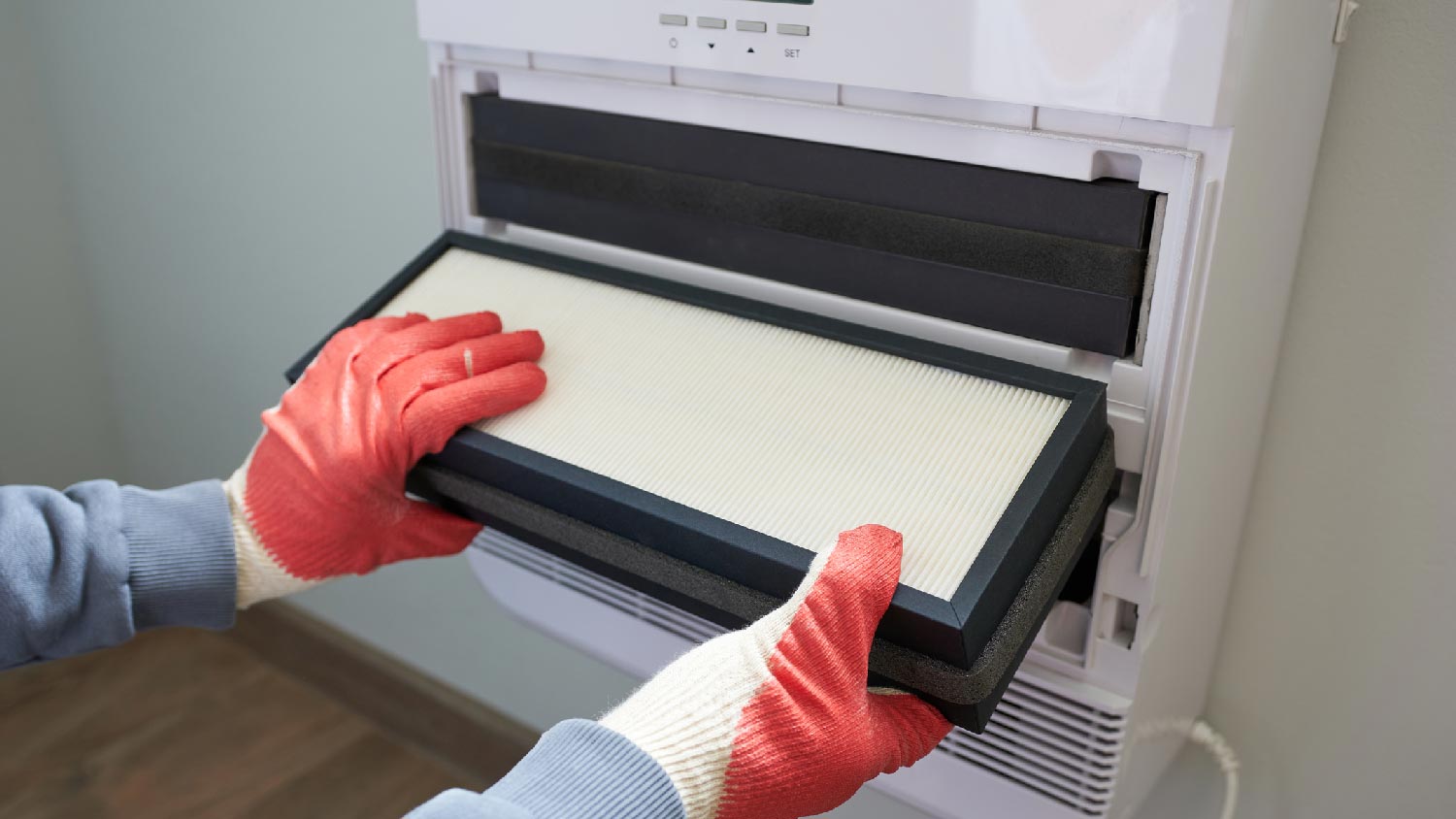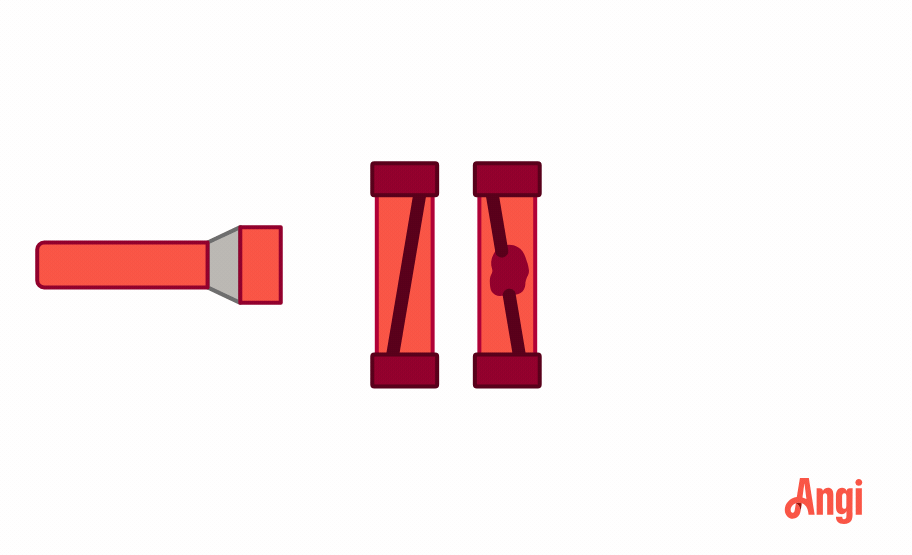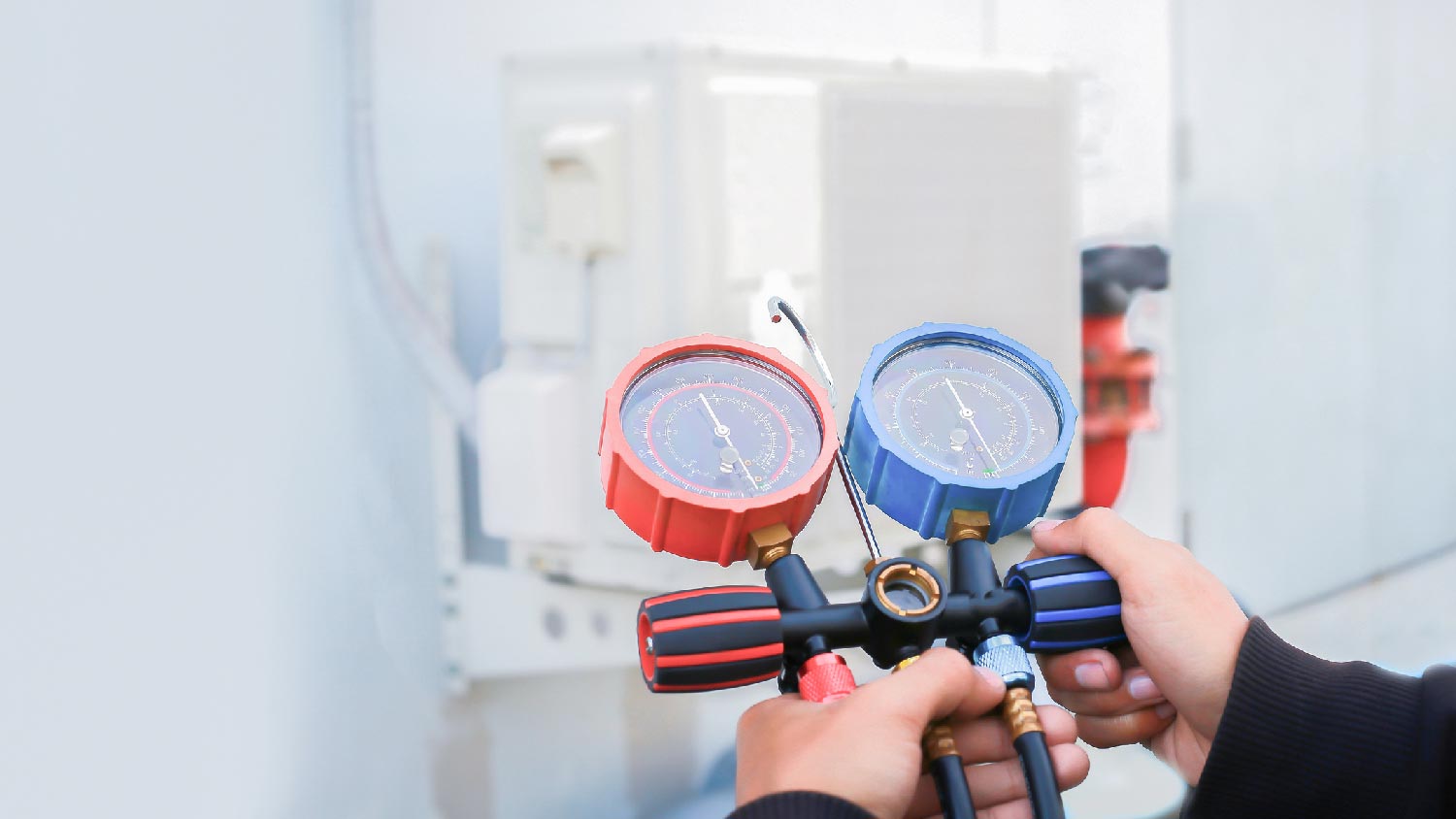
Heating and cooling system on the fritz? Discover the factors that go into HVAC repair costs and how you can save money on this crucial home update.
Don’t let your home lose its cool


“Automatic” modes on digital thermostats are a common reason the AC turns off by itself, but you can fix this by turning off the mode in the corresponding app.
Dirt easily obstructs AC components like coils and filters, but regular cleanings can keep the unit functional.
Certain mechanical and electrical issues cause short cycling and should only be handled by a pro.
The last thing anyone wants on a sweltering summer day is for their AC to keep turning off by itself. If this happens, your first instinct might be that the unit is on its last legs, but if you have central air or a newer unit, the underlying cause might be a simple fix or a complex issue that requires an HVAC professional. Here are six possible reasons why the air conditioner keeps turning off by itself and what you should look for before calling the pros.
The entire point of installing a smart thermostat is to regulate your home's temperature and keep it humming along with minimal input on your part. But even if you program a thermostat to your preferences and activity patterns, it can still go awry. Certain smart and digital thermostats are notorious for shutting off earlier than expected or turning the AC on and off when you don't want them to.
Your smart thermostat may need a power connector if it’s a recent installation and your analog thermostat worked just fine. Alternatively, you may need to check your connected app and see if you have automatic cooling modes set or if it’s still learning your household’s activity patterns. Turning off automatic modes might help. Otherwise, you should contact a local thermostat repair pro for help.

Can't figure out why you're sneezing nonstop with watery eyes, all while your AC keeps shutting itself off? You might have dirty air filters that need cleaning or replacement. Shut off your air conditioner so that you can take a look at the filter. If you pull out a filter that looks like a literal Dust Bowl, that might be your culprit for why the unit keeps short cycling.
Dirty air filters cause a host of problems, including restricting the airflow in your home. When an air conditioner can't freely pull air in and out, the restricted airflow turns toward the coils inside the unit, causing them to freeze. This makes the air conditioner turn off by itself. Cleaning the air filter or replacing it might solve the problem. Even if the problem persists, it's still a good idea to clean the filter so that it doesn't worsen both airflow and allergy issues.
Condenser coils can freeze for a number of reasons. But they can also overheat since they don’t have much protection from the elements. Condenser coils are located outdoors, and if you've ever stood next to them while the AC was running, they feel incredibly hot because they release heat from inside your home.
If your air conditioner keeps turning off by itself, the condenser coils could be overheating. They're exposed to the elements year-round, so layers of grime, dust, and other debris accumulate. The condenser coils could need a good cleaning if they’re overheating from trying to function through a blockage.
AC compressors are a mechanical element of air conditioners. They generate the pressure that refrigerant needs to emit cold air after absorbing the heat from your home. Compressors can also overheat for many reasons, like dirty HVAC parts and low refrigerant. Compressors also wear out over time, as all mechanical parts do. If your AC randomly shuts off, a worn-out compressor could be the cause.

Electrical problems can cause your air conditioner to keep turning on and off, or short cycling. If you have an older home that uses a fusebox, check that the fuse for the air conditioner hasn't blown. Replacing the fuse might fix the problem.
More advanced electrical problems affecting HVAC systems include electrical line faults, broken capacitors, or disconnected circuitry. If it's an electrical issue rather than an HVAC issue, you should contact a local electrician because electrical problems are dangerous to handle on your own.

Refrigerant is to your air conditioner like oil is to your car. Air conditioners need refrigerant to operate, but it doesn't need to be replaced as often as oil. Liquid refrigerant is what converts the hot air in your home into refreshing coolness by absorbing that heat and evaporating it through the heat exchange and condenser coils.
Air conditioners that constantly short cycle might indicate low refrigerant levels in your system. However, refrigerant doesn't constantly run out. It gets reused and recycled through your system. If it seems like your HVAC system requires an abnormal amount of refrigerant, you probably have a ruptured line. Leaky refrigerant lines can damage the entire system and create a very expensive problem.
You may be able to detect a leak if you smell a sweet but chemical scent when your AC keeps shutting on and off. Call a pro ASAP if this is the case. Refrigerant is an extremely dangerous liquid, and you should not cut or touch refrigerant lines yourself. Only a licensed local air conditioning repair company should handle refrigerant, as they have the proper training and permits.
My dishwasher had been giving me trouble, and the repair service was fantastic. They quickly identified the issue and had it back up and running. Highly recommend!
I want to leave a positive review for 7 Hills Tiles, who I hired to renovate my bathroom. I am very pleased with the result and the work done. Firstly, the tiler arrived on time and within the agreed time frame. He showed professionalism and competence in his work. He was well versed in...
Jason was very professional and provided excellent service. He came and quoted me a price and we agreed upon the day when the service of mowing the lawn, edging the yard and removing the leaves. He showed up on time and showed out. I was very pleased with his work. Thank you so much Farrell...
If you are in need of the windows of your car, truck, home, office or pretty much anything made of glass Iâ d wager, it is in the highest regards I strongly recommend to you Gil Rosas and his company Ozone Window Films. Mr. Rosas recently film-tinted an ample amount of old single-pane...
Excellent work, thorough, punctual, and reasonable. We would highly recommend and hire again.
We replaced several windows and a door. The project was seamless. Jon C., Darius A and Thomas B made sure that every detail was met and questions answered. We love the new windows and door!
Meredith and Eric were both very professional and knowledgeable in their presentation and helped us a great deal in making our decision, let's hope the work equals their abilities.
They were courteous and professional and showed up when told.
From average costs to expert advice, get all the answers you need to get your job done.

Heating and cooling system on the fritz? Discover the factors that go into HVAC repair costs and how you can save money on this crucial home update.

Furnace cleaning is an essential annual chore to keep your home safe. Find out common furnace cleaning costs by type and size of furnace with this guide.

The cost of boiler repair depends on the specific issue. Read our expert guide, which breaks down boiler service costs so you can budget accordingly.

Having dirty evaporator and condenser coils works your HVAC system harder than it needs to. Here’s how to clean your air conditioner coils like a pro.

Learning how to secure a window AC unit will avoid personal injury and damage to your home. It will also protect against theft and break-ins.

Thinking about installing a heat pump in your home? Learn about the different types of heat pumps and the options you can choose from in this guide.